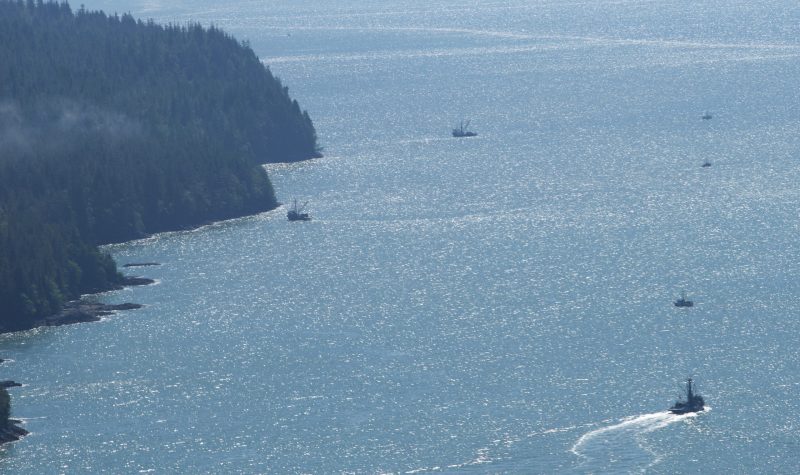Commercial salmon harvesters on B.C.'s north coast are calling out the federal government and the Department of Fisheries and Oceans for their poor management decisions during this year's record Skeena River sockeye run, as they cite conservation concerns and endorse the precautionary approach.
While Canadian commercial fishing boats shutdown and stay tied to the dock during the later part of the largest run in 20 years , harvesters just over the boarder in Southeast Alaska were increasing their quotas and fishing 5 days a week.
“Canada is abusing the precautionary approach,” said UFAWU-Unifor President James Lawson. "FAWU-Unifor supports responsible and scientific decision making but rejecting the PSC’s recommendations confirms that Canada is ignoring clear scientific data.”
2022 is the sixth largest Skeena River sockeye run in 100 years was closed after only 650,000 sockeye were caught to allow an escapement of 3.4 million, which is 3.5 times the required escapement of 900,000 sockeye. The commercial fishery catch rate was 16% of the Return to Canada of 4.1 million sockeye.
The Nass River sockeye fishery never opened to the all-citizens commercial fishery. However, the Nisga’a and Gitanyow nation commercial fisheries took place on the same stock. Nass sockeye returned in numbers exceeding most of the last 20 years and the escapement is double the 200,000 required.
Joy Thorkelson, a member of the Union in Prince Rupert and it's former president, said she and others spoke to the provincial minister for lands, water and natural resource stewardship Josie Osbourne about weather the B.C. government supported the DFO decision to close commercial harvesting of salmon. What she heard was nothing new.
"DFO has said they are not discussion workforce adjustment programs [to retrain out of work harvesters] and it's incredible to hear that," said Thorkelson. "The provincial government is well aware of that and has brought it to the federal government before."
Listen to the full interview below.


